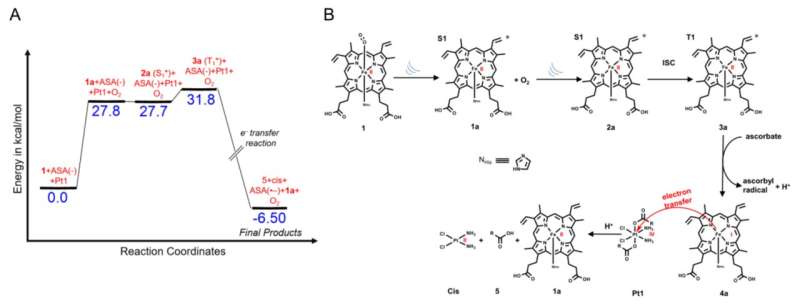This article has been reviewed according to Science X's editorial process and policies. Editors have highlighted the following attributes while ensuring the content's credibility:
fact-checked
peer-reviewed publication
trusted source
proofread
Team develops anticancer nanoparticles with ultrasound activation

Chemotherapy treatments produce strong side effects. A new agent that accumulates in the tumor tissue and is activated there by ultrasound waves does not have this problem.
Platinum complexes are among the most commonly used drugs against cancer. They are successful, but have severe side effects. An international research team led by Dr. Johannes Karges from the Faculty of Chemistry and Biochemistry at Ruhr University Bochum, Germany, has developed a complex that accumulates in tumor tissue and is activated there by ultrasound waves.
Its cell-damaging effect thus only unfolds where it is actually wanted. "Where previous studies relied on light activations that can only penetrate a few millimeters deep into the tissue, we have now developed a treatment method with ultrasound activation that penetrates several centimeters deep into the body," says Karges.
This could make treatment with few side effects possible even for large and deep-seated tumors. The researchers published their results in Angewandte Chemie International Edition.
Harmless in healthy tissue
The platinum(II) complexes cisplatin, oxaliplatin and carboplatin are among the most commonly used cancer drugs. Their clinical success is offset by severe side effects, such as nausea, vomiting, kidney damage and bone marrow suppression. To overcome these limitations, major research efforts have been invested in the development of so-called platinum(IV) complex prodrugs over the past decades.
"These prodrugs are stable and inactive, so they are completely harmless," explains Johannes Karges. "In healthy tissue, they are supposed to stay that way. In cancer tissue, however, they should be rapidly converted into the therapeutically active platinum(II) complexes."
Energy is required for the reduction of the metal complex. Previous studies reported activation with ultraviolet, blue or red light. "The problem is that light can only penetrate less than a centimeter deep into the body and thus does not reach many tumors," explains Johannes Karges. To overcome this limitation, his team has for the first time combined platinum(IV) complex prodrugs with sonosensitizers that can be selectively activated with ultrasound irradiation.
Nanoparticles accumulate in the tumor
To develop a therapeutically effective complex, the researchers encapsulated the platinum(IV) complex prodrugs and the sonosensitizers together in hemoglobin to form nanoparticles. "We were able to observe that the nanoparticles selectively accumulated in a mouse intestinal tumor after injection into the bloodstream, thus supporting targeted treatment," reports Johannes Karges.
"After irradiation with ultrasound, the platinum(IV) prodrug was activated at the tumor site, triggering the release of cisplatin, which is toxic to cells, and almost completely eradicating the tumor."
Advantages of ultrasound
These results could pave the way for the development of novel techniques and agents for the treatment of very large or deep-seated tumors. Ultrasound can penetrate more than an order of magnitude deeper into tissue than near-infrared light. In addition, ultrasound treatments are generally considered to be less invasive and easy to use. Another advantage is that hospitals are usually already equipped with the necessary equipment. "Our work is still fundamental research," Johannes Karges emphasizes.
"Whether and when treatments based on this can be offered in clinical practice is not yet foreseeable."
More information: Ganghao Liang et al, Reduction of Platinum(IV) Prodrug Hemoglobin Nanoparticles with Deeply‐Penetrating Ultrasound Radiation for Tumor‐Targeted Therapeutically Enhanced Anticancer Therapy, Angewandte Chemie International Edition (2023). DOI: 10.1002/anie.202301074
Journal information: Angewandte Chemie International Edition
Provided by Ruhr-Universitaet-Bochum





















